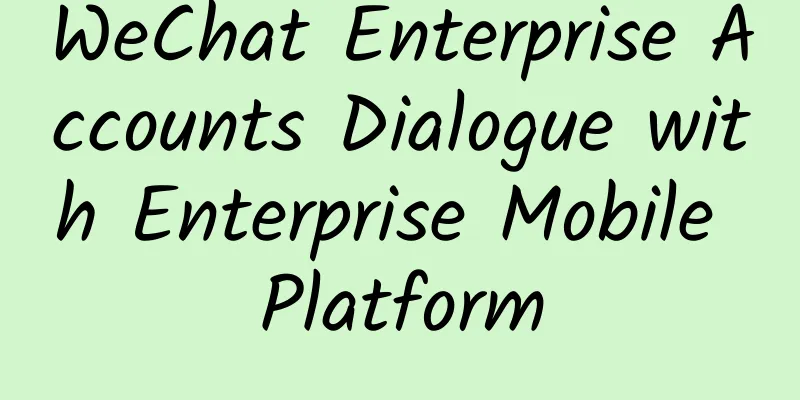The battle between Xiaomi and LeEco: Different schools of thought among Steve Jobs’ Chinese disciples

|
All the wars of words between businesses are open marketing wars for commercial purposes. They promote their own advantages and attack the opponent's weaknesses; the ultimate goal is to increase market sales and compete for users. Back to the point, Xiaomi and LeEco started a new round of verbal war last night. Why again? Because this is not the first time these two companies have fought against each other, not even the second time. And the focus of this debate is still the ecosystem. Let's first look at the situation of this round of verbal war. At the Xiaomi Ecosystem Media Meeting yesterday, Xiaomi CEO Lei Jun mentioned LeTV, a friendly company, a lot. He mentioned that Xiaomi's strategy is "We are not a video website, and we don't understand filming and production. Our mission is to focus on making mobile phones and TVs well, and open our minds to cooperate with the entire content industry. The more friends the better!" Xiaomi co-founder Wang Chuan directly pointed out that the relationship between LeTV and content suppliers is just a simple buyer-seller relationship, that is, business, and its closed model is not an ecosystem, it can only be called diversified. Of course, Xiaomi did not suddenly fire without reason. LeTV CEO Jia Yueting had previously said at an investment communication meeting that "Xiaomi's video content alliance is a loose alliance." After Xiaomi's public criticism yesterday, LeTV's official Weibo account published a 2,000-word Weibo post, fiercely accusing Xiaomi of lying out of guilt, and refuted the "three major lies of friendly competitors" one by one. Although they call each other "friendly competitors", they are not friendly at all. Although Jobs, Gates and Ballmer have publicly mocked their opponents, they are not as tense as Xiaomi and LeTV. Although Xiaomi and LeTV have argued tit-for-tat over the concept of ecology, they are actually both Chinese disciples of Jobs, just with different schools. Yes. Lei Jun and Jia Yueting are both nicknamed "Leibusi" and "Jiabusi" because their entrepreneurship and development are more or less influenced by Steve Jobs' Apple, absorbing many models and concepts, and even the press conferences are so familiar. Of course, both have added Chinese characteristics of Steve Jobsism, and each has its own advantages and characteristics. Putting aside the two companies' various fancy words and moving rhetoric, which are just for marketing needs, let's take a look at how Xiaomi and LeTV each learned from Steve Jobs' successful experience with Apple. Specifically, Xiaomi is more like the Apple model after the iPhone, expanding horizontally from the mobile phone platform. First, MIUI was developed, and then Xiaomi mobile phones were developed, creating a platform that combines software and hardware. Through the cost-effective strategy of low price and high configuration, relying on the localization advantage of MIUI, it has rapidly grown to an annual sales volume of 60 million units in a few years, becoming one of the top two in the Chinese market. After Xiaomi mobile phone achieved great success, Lei Jun continued to expand his product range based on this core, through his own research and development and investment in start-up companies, and launched various related peripherals and smart hardware, including TVs, bracelets, power supplies, boxes, routers, scales, and headphones. With the advantages of the platform and low prices, he continued to attract new users to the Xiaomi ecosystem and become Xiaomi's current and future users. After Xiaomi's success, many domestic smartphone manufacturers are also taking this path. In contrast, LeTV is more like the Apple model that started with iTunes, expanding vertically from the content platform. It expanded from video websites to content production and sports live broadcasts, and then launched LeTV TV, which combines content and hardware, to become a user's home entertainment platform. This year, LeTV also released a smartphone, taking the cost-effective route by announcing the cost price, trying to attract users into its own ecosystem through its own content, including using service fees to offset the purchase price of the phone. After that, LeTV also planned to enter the electric vehicle field, but of course this has not been successful, so we will talk about it later. Of course, compared with Xiaomi, LeTV has only just started. One of the important factors for Xiaomi's success is social marketing. Xiaomi caught up with the golden period of Weibo's rapid growth. It was also the first domestic manufacturer to learn the iPhone model, so it has an important first-mover advantage. When LeTV was released, the Chinese smartphone market had entered a fierce competition stage, and the growth of shipments gradually slowed down or even flattened. Xiaomi, Huawei and other manufacturers began to seek new growth overseas. Xiaomi was happily making its own software and hardware for smartphones, and LeTV was quietly developing its own video website and TV. The two companies had no intersection, so there was no need for a war of words. Recall that Xiaomi was previously involved in a war of words with Meizu, 360 and Huawei, and its opponents were Huang Zhang, Zhou Hongyi and Yu Chengdong respectively. But when Xiaomi launched home entertainment and TV products, it entered the territory of LeTV smart TV; when LeTV launched its own smartphones, it entered the Xiaomi smartphone market. The conflict between the two companies became more and more public, even to the point of tearing pens openly on Weibo. It was nothing else, in fact, they were all for commercial purposes such as market sales and to compete for users to the greatest extent. Let's look at the focus of this round of debate between Xiaomi and LeTV. Xiaomi criticized LeTV because it spent $1 billion to build a content platform that includes more than 100 video websites and 10 major online applications, which is at the top in terms of scale. However, LeTV's content comes from its own production and copyright purchase. Since LeTV has been in the video field for many years, Xiaomi's content was originally a disadvantage compared to LeTV. However, since last year, Xiaomi has relied on its strong financial resources, through large-scale investment and cooperation, to quickly form a video alliance within half a year, using videos from various companies to enrich its content library. Perhaps it is precisely because of this achievement that Xiaomi feels it is time to tease its friendly competitor LeTV, and more importantly, to promote its own content platform and super TV through this round of debate. As I said before, although both Xiaomi and LeTV learned from Jobs, they took different paths. Xiaomi started with a smartphone that combines software and hardware, and built content in the same way as iTunes, attracting a large number of content providers to enter this big store, so it is easy to gain a quantitative advantage. Users can enter the Xiaomi content platform for free, but a large amount of content needs to be paid to content providers. LeTV relies on content + hardware to attract users. They started as a video website, then entered the sports live broadcast market, and then launched TVs and mobile phones. Users consume LeTV's content in a subscription model, and use the subscription fee to offset part of the mobile phone hardware purchase costs. So it is easy to see that Xiaomi criticized LeTV for charging for content, and LeTV mocked Xiaomi's content as mercenaries. These accusations are not valid. These are two different content creation models. It is like Microsoft accusing Apple of Mac being too closed, and Apple mocking the Windows manufacturer lineup as mercenaries. It is exactly the same. Both companies are successful examples of Chinese companies learning from Steve Jobs and Apple, but they chose different ways of development because of their different starting points. Now they are arguing over the concept of "ecosystem", which has little practical significance. It is more just to market their own services and compete for more users. The world is bustling with people, all for profit; the world is bustling with people, all for profit. As a media, you need to see the different models of the two companies; as a user, you only need to start from your own needs. Ignore the disputes and just choose the good products and services that suit you. Go ahead and argue, it’s all a marketing war. As a winner of Toutiao's Qingyun Plan and Baijiahao's Bai+ Plan, the 2019 Baidu Digital Author of the Year, the Baijiahao's Most Popular Author in the Technology Field, the 2019 Sogou Technology and Culture Author, and the 2021 Baijiahao Quarterly Influential Creator, he has won many awards, including the 2013 Sohu Best Industry Media Person, the 2015 China New Media Entrepreneurship Competition Beijing Third Place, the 2015 Guangmang Experience Award, the 2015 China New Media Entrepreneurship Competition Finals Third Place, and the 2018 Baidu Dynamic Annual Powerful Celebrity. |
<<: Broken promise or innovation? AutoNavi opens LBS technology to support O2O business
>>: Why are Uber and Didi obsessed with platform strategy?
Recommend
China 4G: Apple and Samsung continue to fall sharply
After tasting the sweetness of cooperation with Ch...
US operators announce 5G commercial download speeds of up to 10GB per second
Today, Verizon Communications announced that it w...
Content operation monthly salary from 3,000 to 30,000, just 5 steps!
As a content editor of a product, you will focus ...
Creative analysis of educational and training advertising materials!
According to QuestMobile data, the online educati...
2020 Chongqing College Entrance Examination Champions: Liu Yihan scored 686 points in liberal arts and Xie Xinying scored 726 points in science
2020 Chongqing National College Entrance Examinat...
How to achieve new user traffic across the entire network?
Recently, the E-Commerce Research Center of the C...
Is Miaopai's efforts in vertical content a desperate gamble or a confident move?
Vertical short videos are the first choice for sh...
Revealing the three major pitfalls of hot marketing, new media operators, don’t you read this?
Hot topics are what brand public relations profes...
How many mobile phone manufacturers have lost in Nokia’s patent war?
The patent war between Apple and Samsung lasted f...
Top 10 Brand Marketing Trends in 2022
Last Sunday, we discussed with our friends on “Br...
A famous actress died of "influenza complicated with pneumonia"! Don't delay catching a cold if you have these symptoms...
According to The Paper, Taiwanese actress, singer...
Google releases Android cross-device SDK developer preview to easily build rich multi-device experiences
At the I/O 2022 Developer Conference, Google deta...
Detailed experience of the latest version of WeChat: tap and feel comfortable
WeChat 7.0.18 is here. This update brings a featu...
From 0 to 1, a complete guide to operating the hit app "Tik Tok"!
Last Friday, I collected some of the biggest prob...









